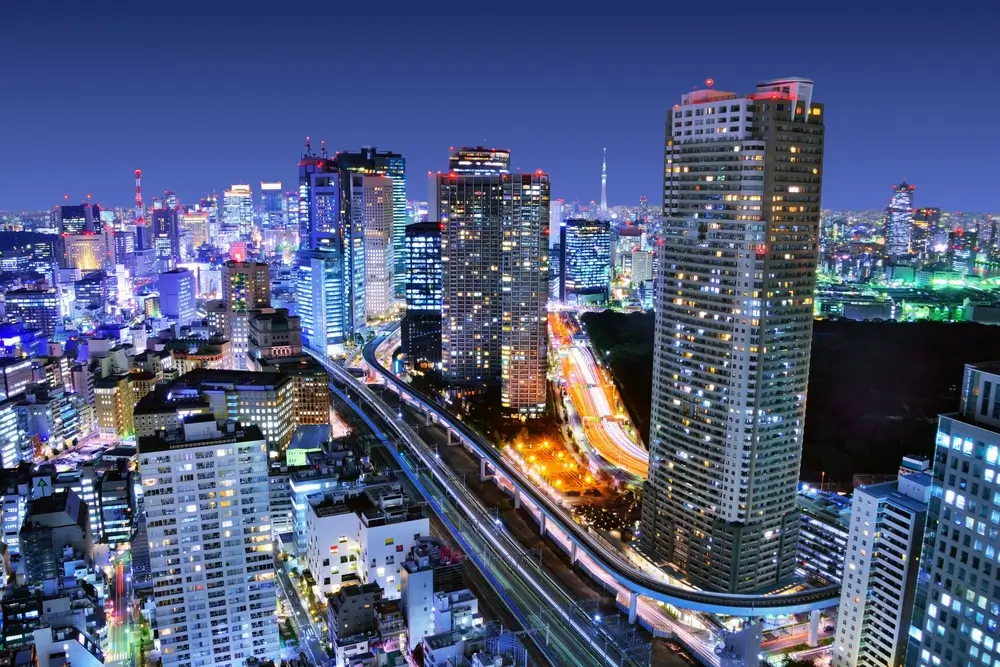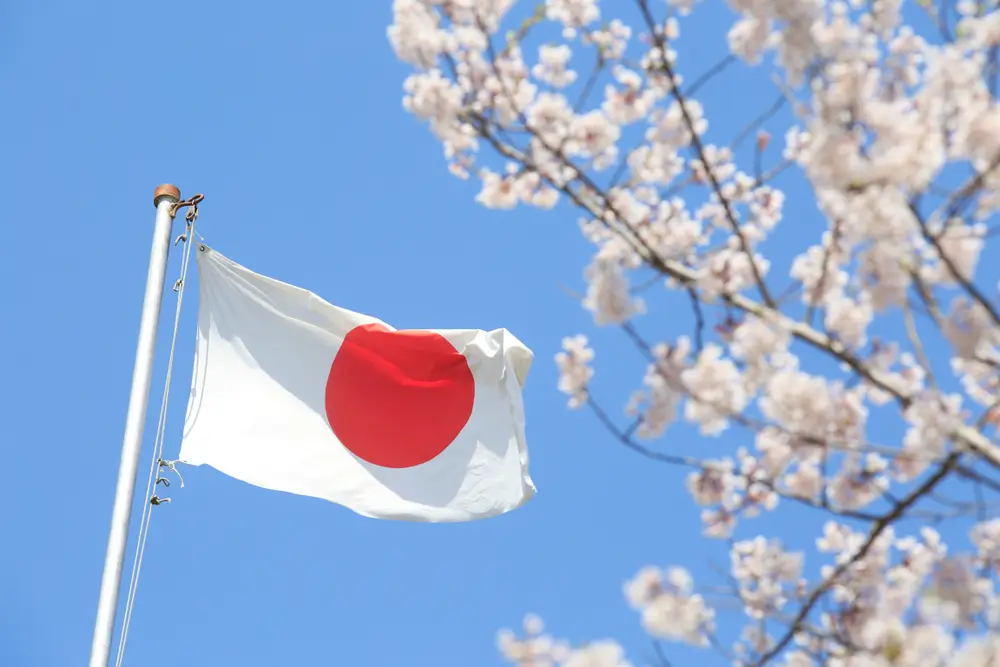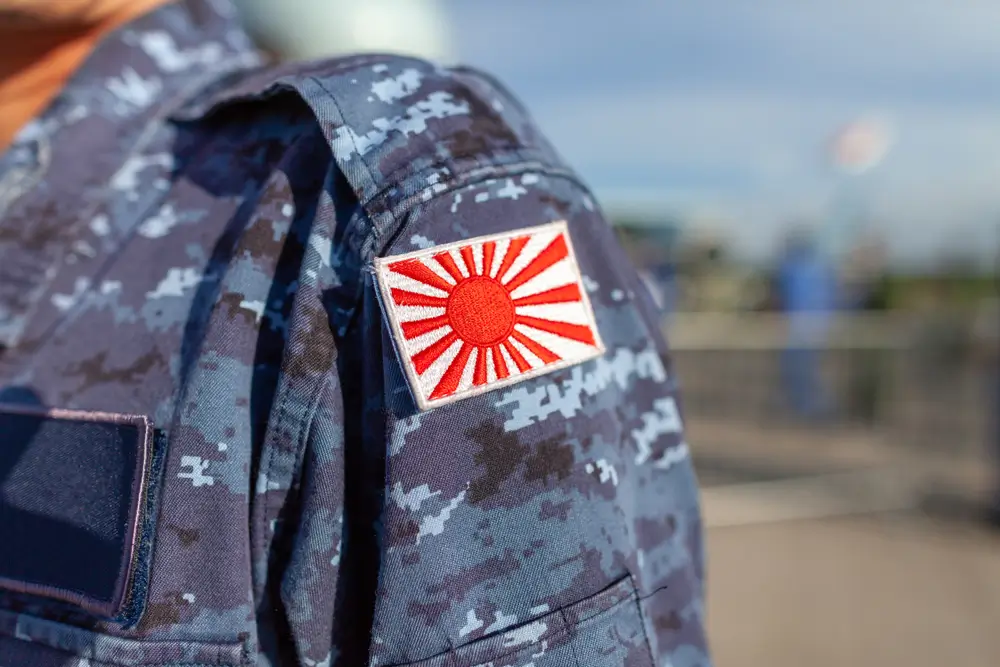Japan
Japan دليل البلد

A culture that’s been preserved for so long yet the technology at its best. Yes, we’re talking about Japan where the past and future combine during the present. From ancient samurais to Noh theatres, haiku to mangas, and especially the art of tea ceremony, Japan is a living wonder. Yet, alongside this rich cultural environment, Japan stands as a global leader in technology and innovation for sure. Its cities pulsate with futuristic skyscrapers, bullet trains speed across the landscape, and automated technologies to make everyone’s lives easier. It's a nation where ancient practices harmoniously coexist with state-of-the-art advancements, creating a unique blend of past, present, and future.
No matter which season you’re planning to stay in Japan, you won’t be disappointed. Enjoy the summer festivals, go see the cherry flowers during the spring, be amazed by the colorful leaves surrounding the whole country, and of course, dive into the hot springs in winter. Are you planning a budget-friendly or luxurious visit? Every Japan hotel deal is right in front of you on our platform. If you are having second thoughts about going to Japan, don’t worry, because we cover every crucial info you need to know about Japan as Bookperfect. Let’s get started!
Capital of Japan
The capital of Japan is Tokyo. Historically, the Japanese capital has changed throughout history with cities such as Kyoto serving as the capital until 1868 when the capital was moved to Tokyo. Today, Tokyo remains the capital of Japan, and it is also the most populous prefecture in the country.
Japan Flag

The national flag of Japan consists of a white field with a central red disk, symbolizing the sun. Japan’s flag, known as the Nisshoki or Hinomaru, has a width-to-length ratio of 2 to 3. The design of the flag dates back to ancient times, with the current form officially adopted on August 5, 1854, during Japan's opening to commerce and diplomatic relations with European countries. The red sun on the flag represents the sun goddess Amaterasu, who is considered the ancestor of Japan's first emperor, Jimmu. The red sun contrasts with the white background and represents Japan as the "Land of the Rising Sun".

However, there’s also a notorious flag of Japan which symbolizes Japanese imperial aggression and war crimes. Yes, the “Rising Sun Flag” of Japan. he Rising Sun flag is frequently compared to the Nazi Swastika, and with good reason. Formally designated as the war flag of the Imperial Japanese Navy in 1870, this flag evokes memories of the Japanese occupation for Chinese and Korean individuals, reminding them of the associated atrocities.
Japan Location
Japan is an island country located in East Asia. It is in the northwest of the Pacific Ocean, bordered by the Sea of Japan to the west, extending from the Sea of Okhotsk in the north towards the East China Sea, the Philippine Sea, and Taiwan in the south. Japan is part of the Ring of Fire which is a tectonic belt of volcanoes and earthquakes.
The country is an archipelago of 14,125 islands, with the five main islands being Hokkaido, Honshu (the largest island), Shikoku, Kyushu, and Okinawa.
Time in Japan
Japan time zone is Japan Standard Time (JST), which is UTC/GMT +9 hours. Japan does not observe Daylight Saving Time (DST). This means that Japan is 9 hours ahead of Coordinated Universal Time (UTC).
Languages Spoken in Japan
The official language of Japan is Japanese, which is also called Nihongo or written as 日本語 in their language. Japanese is an idiographic language which means symbols represent words. Meaning that there can be many words pronounced the same but mean different. For example, there are three “Kami” in Japanese: paper (紙), hair (髪), and god (神). Other than that, 99.2% of the Japanese population speaks Japanese. Other languages spoken in Japan are English, Chinese, Korean, Thai, Vietnamese, Spanish, French, and Dutch.
What Currency Does Japan Use?
The official currency of Japan is the Japanese Yen (JPY), introduced in 1871. The yen is symbolized by ¥ or JP¥. Japan money has 1, 5, 10, 50, 100, and 500 yen coins, as well as bills of 1,000, 2,000, 5,000, and 10,000. While credit cards are accepted in hotels and larger shops in major cities, cash is predominantly used in Japan. It is advisable to bring euros or dollars and exchange them for Japan money at banks or exchange points to minimize commission fees. Additionally, ATMs are available in banks and 24-hour shops like 7-Eleven for convenient cash withdrawals.
Is Japan Expensive?
One of the most asked questions is “Is Japan expensive to visit?” among those who are planning to visit the country. It may seem like giving a visit to Japan will cost more than it should but most people say that the prices are not as high as they were expecting. Still, both transportation and accommodation will be the biggest hardship unless you find a way to budget. Standard four-star hotels in Tokyo average around US$150 per night, while hostels offer dorm beds for about US$20 per night. Capsule hotels are another budget-friendly option at around US$35 per night. Additionally, staying in business hotels, common in Japanese cities, can cost around US$60 per night. Thankfully, spendings on sightseeing and food won’t hurt your pocket that much!
Japan Population
As of February 2024, the population of Japan is 122 million. Since 2010, the growth of Japan's population has declined gradually even though it is the 11th most populous country in the world.
Japan Safety
Japan is considered one of the safest countries in the world being in the top 10, at 9th ranking. This means that Japan is safe for families and solo travelers. However, it’s still advised to be aware of your surroundings when you are in crowded places.
Strange Laws in Japan
Metabo Law: Introduced in 2008, this law mandates waist measurement checks for individuals aged 40–74; companies or local authorities may face fines if employees exceed the recommended waist size.
- Medication Import Restrictions: Japan strictly regulates imported medications, and travelers should be cautious when bringing prescription drugs into the country.
- War Prohibition: Since WWII, Japan's constitution prohibits maintaining armed forces and using military force to settle conflicts.
- Outdoor Smoking Ban: Although smoking is allowed indoors, it is banned outside on sidewalks.
- Home Brewing Regulations: Making homemade alcohol with more than 1% alcohol is illegal.
- Human Cloning Ban: Human cloning is prohibited by law.
- Public Decency: Not particularly a law but showing too much skin can make you uncomfortable by the amount of side eyes you get in public.
- Statutes of Limitations: Until 2010, there was a 25-year limit on prosecution for murder; this was later extended to 30 years for sexual assault and homicide.
- Dancing After Midnight Lighting Requirements: Clubs must switch on lights to at least 10 lux after midnight to prevent dancing.
- Mailbox Ice Cream Ban: Putting ice cream in a mailbox is prohibited due to a 2016 incident involving a postal worker.
- Naming Newborns: Naming a newborn baby with bad energy is strictly forbidden.
Japan Religion
Throughout history, there are two main religions in Japan which are Shinto and Buddhism. Japanese people also think that both religions can coexist together with such harmony. Here’s a quick list of what are the religions in Japan:
- Shinto & related beliefs: 70.8%
- Buddhism & related beliefs: 67.6%
- Other: 5.9%
- Christianity: 1.5%
However, there’s the fun part. Even though these percentages are high enough for people to be convinced that Japanese people are religious, they are not. Just because they are doing such religious practices, they don’t consider themselves a “believer”. In fact, 86% of the Japanese population identifies themselves as a non-believer.
Must-See Japan Attractions
Of course, your trip would be pointless if you didn’t visit the best Japan attractions. From Tokyo Tower to its sakura trees, everything you see in Japan will be fascinating as if you’re discovering a new world! So, here is the list of top Japan attractions you should see during your trip:
- Fushimi Inari Shrine in Kyoto: Known for its thousands of vermilion torii gates.
- Meiji Jingu Shrine: Dedicated to Emperor Meiji and Empress Shoken in Tokyo.
- Sensoji Temple: One of the oldest Buddhist temples in Tokyo.
- Atomic Bomb Dome in Hiroshima: A UNESCO World Heritage Site symbolizes the devastation caused by nuclear weapons and serves as a powerful reminder of the importance of abolishing nuclear weapons.
- Himeji Castle: A beautiful castle built in Hyogo Prefecture.
- Kinkakuji Temple: Also known as the Golden Pavilion in Kyoto.
- Kiyomizudera: A historic temple complex with scenic views in Kyoto,.
- Tōdai-ji: Home to the Great Buddha statue in Nara Prefecture.
- Dotombori District: A popular shopping and entertainment district in Osaka.
- Mount Fuji: The symbol of Japan, known for its graceful conical form. Also known as “Fuji-san”.
- Asakusa: A neighborhood in Tokyo known for its Sensoji Temple and Nakamise Shopping Street.
- Kinosaki Onsen: A hot spring town in Hyogo Prefecture.
- Miyajima: An island near Hiroshima known for Itsutsu Shrine and Daishoin Temple.
Best Cities in Japan
Here are the most famous cities in Japan:
- Tokyo: The capital of Japan and is the largest city in the country with a population of over 8 million people. Tokyo is known for its vibrant culture, technology, and city life.
- Kyoto: Famous for its historic temples, traditional tea houses, and beautiful gardens, is a city that preserves Japan's ancient traditions. A must-visit city for the first timers.
- Osaka:A major economic hub known for its modern architecture, amazing nightlife, and delicious street food.
- Yokohama: Located near Tokyo, it is the second most populous city in Japan with a breathtaking waterfront and diverse cultural scene.
- Hiroshima: Known for its tragic history as the target of an atomic bomb during World War II, is a city of resilience and peace with a population of around 1.1 million.
- Nara: The city famous in history and home to numerous ancient temples and shrines.
- Sapporo: The largest city in Hokkaido, famous for its beer, snow festivals, and outdoor activities.
- Beppu: A coastal city known for its hot springs.
- Kobe: A port city famous for its scenic views between mountains and the sea as well as its Kobe beef.
Best Hotels in Japan
Planning your stay has never been easier with Bookperfect. Our intuitive platform makes finding hotels in Japan so practical. Our comprehensive search engine aggregates all available hotel options, ensuring you won't miss out on potential savings. Additionally, Bookperfect presents every Japan hotel, empowering you to secure the best price for your stay.
If you're making last-minute travel plans to Japan, Bookperfect is your go-to resource for finding the most up-to-date hotel listings and availability. Access our extensive database of available hotels, guaranteeing a seamless and convenient booking experience for your trip.

